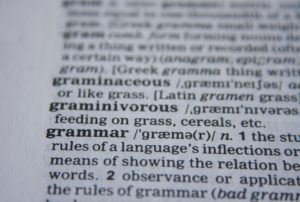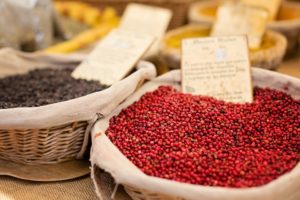David Joy‘s debut novel Where All the Light Tends to Go hit…

Words of Wisdom: Lee Smith, Barbara Kingsolver, bell hooks
Welcome to the first post in a series that gathers wise observations on craft and the writing life from interviews with some of our contributors. We hope that their experiences will inspire you in your own writing endeavors.
…

“For me, writing any novel starts way back. I mean, there will always be some image–usually it’s a visual image–some idea that will just come to me at a certain…moment in my life and stick. And unlike everything else, it won’t disappear with the ravages of time but I’ll think about it more and more…Sometimes it takes me a long time to figure out what this image is about, or what it would mean, and why it won’t go away. But just the very fact that it won’t go away means to me that this is something that’s somehow really important and I need to pursue it. It becomes very compelling–and if it’s not very compelling I don’t do it.”
–Lee Smith, Appalachian Heritage Interview, Winter 2014
…

“I offer this insight: root out all the ‘to be’ verbs in your prose and bludgeon them until dead. No ‘It was’ or ‘they are’ or ‘I am.’ Don’t let it be, make it happen. This insight took root in my soul in the following manner: after I earned my graduate degree in biology I took a job as a scientific writer for the University of Arizona. I spent my days reading reports of scientific research, and translating them into material that ordinary citizens (non-scientists) would want to read. Such leaden barges of verbiage oppressed me, I can hardly bear the recollection of those years. Honestly, after every few pages of Science I wanted to crawl under my desk and take a nap. But I love science! So why, I wondered, is all this prose so stupefying? How can these educated, articulate men and women of science all speak the same soporific tongue? And then the problem dawned on me: the passive voice! The parameters are described…the results are found. Zzzz. Were these writers purposefully concealing the business of who actually did the work, and what they actually did? No, they couldn’t help it, they had to write that way. But I did not. So I learned how to burrow into every passive and render it an active. For reports that crackled and sparked instead of falling over dead, I learned to supply the secret ingredient: verbs, in varieties infinite and endless.”
–Barbara Kingsolver, Appalachian Heritage Interview, Fall 2014
…

“I have likened all my writing to the cooking of a stew. There is a certain element in it that draws people in, but they don’t know what that element is. I consider it the element of the Kentucky backwoods, the hills that were the ground of my being, and it’s like adding cumin. People don’t know what the spice is, but they can taste the difference. I think that’s been true of my writing career since the first book was published, that there was a quality of boldness of voice and clarity, but it was never linked to geography. It’s as if the world that celebrated me never really wanted to deal with my origins as a Kentucky thinker and writer.”
–bell hooks, Appalachian Heritage Interview, Spring 2012
…
